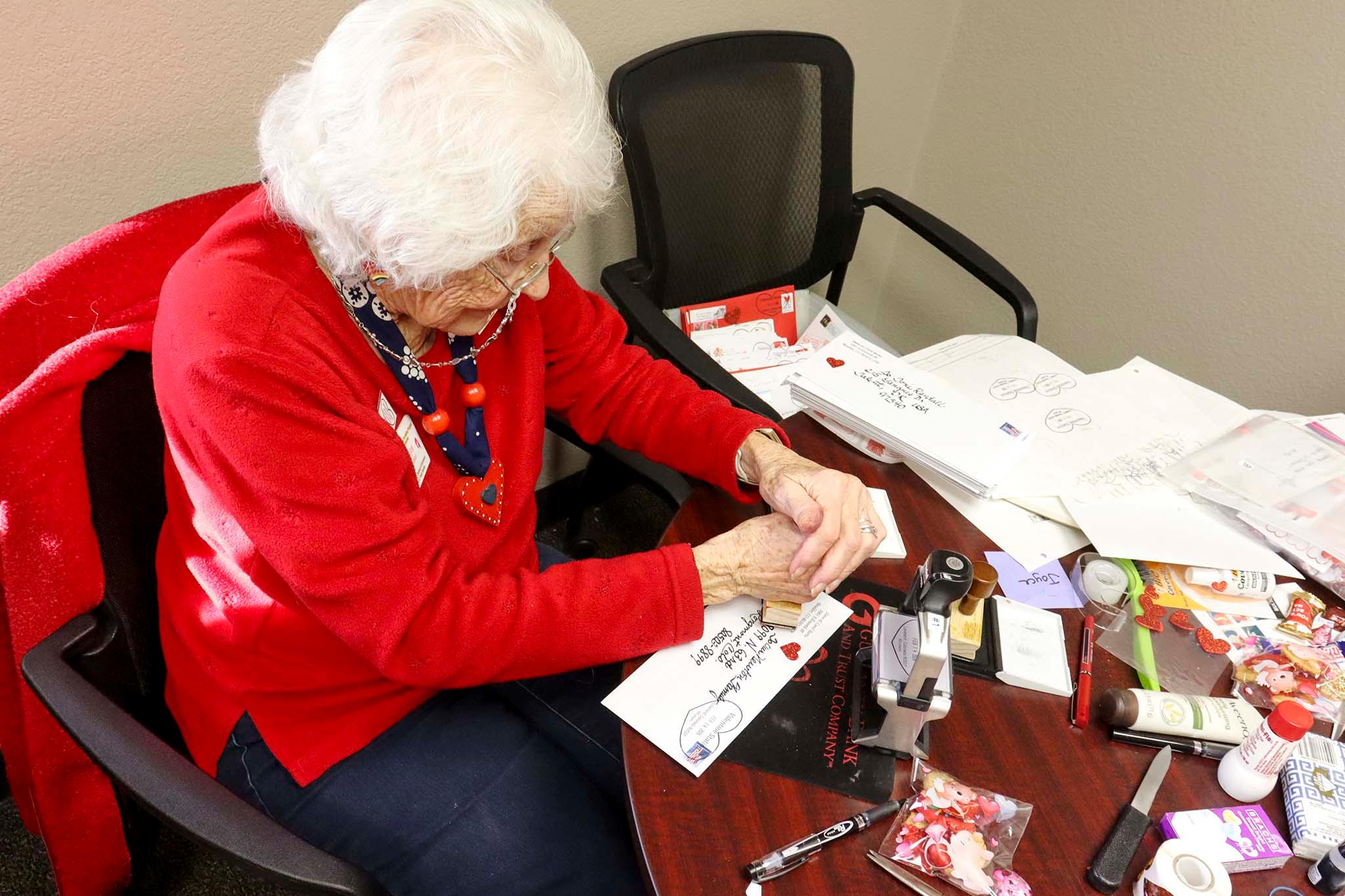
Denver voters are ready to drop some serious dough on improvements to their city. In Tuesday's election they approved Denver's largest bond package ever, nearly a billion dollars worth of upgrades to transportation, police and fire stations, parks and libraries. Denver Mayor Michael Hancock tweeted, "Thank you Denver," as election results rolled in.
Mayor Hancock told Colorado Matters when and where Denverites might see the first results of the bond package, and discussed Initiative 300, aka the green roof initiative. As of Wednesday morning the measure was ahead by 5 percentage points. The initiative would require new buildings larger than 25,000 square feet to be built with gardens, solar panels or a combination of the two on their roofs. Hancock opposed the initiative, saying "it goes too far, too fast."
Interview Highlights:
On the nearly $1 billion bond passage:
"I'm very proud to wake up this morning as a Denverite, a city where people recognize the opportunities and are willing to make the investments necessary to remain globally competitive. I think the area that we are probably most ready to roll with will be our infrastructure projects around street repaving. Those are, you know, quite frankly, areas that we are ready to roll with different teams."
On the apparent passage of the Green Roof Initiative:
"When the stake holders or the proponents of the Green Roof Initiative, better known as I300, came in, I also shared with them that our values are aligned. And while we disagree with how, we don't disagree with the what. ... We will have to have the city figure out how best to implement it within the laws and property rights that people have, and to make sure that the spirit of the law that the people have passed is implemented appropriately."
Related:
- 2017: Results On Key Ballot Measures, Initiatives, Races
- Curious About The $937M Bond? Here Are A Few Answers
- Mandate Plants On Building Roofs? Denver Ballot Initiative Says 'Yes'
Full Transcript
Ryan Warner: Denver voters are ready to drop some serious dough on improvements to their city. In Tuesday's election, they approved Denver's largest bond package ever, nearly a billion dollars' worth of upgrades to transportation, police and fire stations, parks and libraries. Denver Mayor Michael Hancock celebrated its passage last night, and he joins me from City Hall. Mayor, welcome back to the program. Michael Hancock: Thank you, Ryan. Good to be with you this morning, rather. RW: There are hundreds of projects on this list. What are the first improvements you think Denverites will see? MH: Well, I think, first, that Denver, we've got to thank the people of Denver because they've made a tremendous investment in their city. I'm very proud to wake up this morning as a Denverite, a city where people recognize the opportunities and are willing to make the investments necessary to remain globally competitive. I think the area that we are probably most ready to roll with will be our infrastructure projects around street repaving. Those are, you know, quite frankly, areas that we are ready to roll with different teams of our Public Works Department. After meeting with the team this morning, we recognize those are probably some of the first that you'll see us moving forward with. RW: I know that many Denverites are not unfamiliar with potholes these days. MH: Not in the city that we live in, not with our arid temperatures, our constant freezing and thawing during the fall and winter months. It is a challenge that we have to deal with, being where we live, and with our constant shifting ground, as well, but we have a tremendous A+ team that is out there. Come springtime, they are filling hundreds of potholes, thousands of potholes, quite frankly, to keep this city safe and moving forward. RW: This is more than just road repaving. A lot of this has to do, as well, with transit, and I think trying to ease congestion. Is that right? MH: Absolutely. We knew going into this bond, and I remember saying to the team, I would be really surprised if transportation mobility issues don't rise to the top of the priorities that the people want us to address. Sure enough, as we came out of our community engagement, we had 4,000 ideas; the majority of them were centered around transportation mobility. When you look at how the dollars were parsed out in terms of how we allocated the dollars between the seven different bond questions, more than half of those dollars went to transportation mobility. If you look at the vote from last night, the highest percent of the voters voted yes on transportation mobility package. So we're not surprised that congestion, and how we ease congestion, how we create a more multimodal community, is the top priority for the people of Denver. RW: Some $431 million for transportation and mobility that's going to include different takes on bus transportation in the city of Denver. There's, as you've said, a lot of deferred maintenance in this, but a lot of construction, too, renovations at Red Rocks, the zoo, Denver Health. Of course, that's alongside all the private construction going on. The I-70 project is about to begin. Does the city give some thought to how all these projects are spaced out, or should folks in metro Denver expect a lot of construction delays? MH: Well, you know, we're going to do everything we can to manage the coordination of these projects. I have what we call a bond leadership team, and we'll ultimately have on board a project management team. The goal, of course, is to manage the cadence of projects over the next 10 years that'll be rolled out by the city. That also means coordinating with the state, coordinating with the private sector, as well as the nonprofit sector, as we develop this city, and it continues to develop. So yes, that bond leadership team's job will be to make sure that that coordination is happening and that we minimize the impact on the quality of life in our city while we are trying to make it better. So this is a team of cross-departmental, cross-agencies, cross-external, or with external independent bodies like Xcel, Comcast, Denver Water, so that when we do crack open a road, they can go in, do what they have to do, and we can close it back up, pave what we wanted to pave, and we don't have to do it twice because they have to come back in and do some utility work. But yeah, coordination is going to be critical. RW: I want to talk specifically about the libraries. We've done a lot of coverage on Colorado Public Radio about libraries becoming, in some ways, day shelters for the homeless, the central location in particular. They carry a drug to treat overdoses, that was after someone died from overdosing on its premises. There have been reports of assaults. With this bond package having passed, nearly $70 million for libraries, what do you think will change? MH: Well, I think it's important when we don't allow for what has occurred at the Central Library and at maybe one or two of our other libraries, where some of our homeless residents, as well as some folks who decide to partake in the opiate issues of our community, kind of characterize really how our libraries are operating. They're still a very important place for people to go and to access information around the world that they don't have the ability to access through their own personal means or at home. If you- RW: How will this money help them? MH: Well, I think what you're going to find, better Wi-Fi. You're going to find probably more up-to-date technology and resources available for families or individuals doing research, and also updated resources in terms of books, as well as technological materials available to them. I've walked through some of these libraries. I've got to tell you, some of the older libraries, our Carnegie libraries, they're in disrepair. We've got water damage. We've got just antiquated systems in those libraries, and so we're gonna go improve some of those systems. We're gonna try to improve the central library, so then, there are areas where we gotta address in order to improve safety, but also to create a better flow, where we can keep an eye on the libraries and keep everyone safe and more accessible to the resources that are there. RW: The Green Roof Initiative has not, I understand, been officially called as of this morning, but yes votes lead by 4,000. This would require new buildings larger than 25,000 square feet, be built with space for gardens on top, or solar panels or a mix. The bigger the building, the bigger the area for plants or solar panels. You'd come out against this, saying “it goes too far too fast.” You also said, this wasn't a collaborative enough approach and had some concerns about the cost of green roofs. This looks like it's headed to passage. How do you think the city will plan to work with the stake holders here? MH: Ryan, we also said that our values were aligned, and when the stake holders or the proponents of the Green Roof Initiative, better known as I300, came in, I also shared with them that our values are aligned. And while we disagree with how, we don't disagree with the what. The question is, how do we kind of align those values, and now that it looks to be that it's gonna pass, how do we make sure that there's a responsible implementation going forward. So that's what we're gonna work on. At the end of the day, it's certified that it wins, then we will have to have the city figure out how best to implement it within the laws and property rights that people have, and to make sure that the spirit of the law that the people have passed is implemented appropriately. RW: I'm told that it's actually grown in support. It has even more votes than 4,000 ahead, but you say your values are aligned. Just speak to what is that value. What do you see as the value of- MH: Sustainability. It's about sustainability. It's about cutting in our carbon footprint here in Denver, something we've been working on through our efforts around Energize Denver and really working with our development community to build more energy efficient buildings. It's about what we're doing around automobile travel in the city of Denver and electrification of our city, really encouraging people to get into cleaner vehicles or to chose other modes of transportation in the city that are cleaner in the city of Denver. It's about us converting our own fleet, as the city of Denver, to a more energy efficient and cleaner fleet. So, we share the same values there that we weren't going to argue with. It was, do you mandate this? And two, what does it mean in terms of the impact, the ultimate increase of cost of developing buildings? Not only buildings in the private sector, but buildings in the city. For example, we just passed this bond. We don't have, for example, as we get ready to expand the Convention Center, dollars programmed in for this type of infrastructure on the roof of the Convention Center. So, there are concerns that we have, that we had going in, that we have to be considerate of. RW: But proponents would say, that over the long term, there's a cost savings here to consider as well. That's part of the arithmetic. MH: Well, ultimately the ROI, in the long term, yes. But today, where we have already funded the expansion of the Convention Center, for example, we didn't have dollars programmed into that budget. It's a very tight budget as it is. I don't want to get into that as much, but the reality is that those are things we have to look at as a city, as we look to implement this new law. RW: You said, “ROI” there: return on investment. I suppose, finally Michael Hancock, will this be to some extent, your legacy as mayor? I mean, this is an enormous amount of money that voters have agreed to spend. MH: You know, I quite frankly and candidly, don't spend a lot of time thinking about legacy. What I think about is, here's a city that I live in, that I'm very proud of, and I plan to spend the rest of my life in and ultimately, what are those things we do today that will lead us to an improved quality of life going forward and continue to be the city that we're all proud to call home, and proud to attract business to. So, you know, the reality is today, we are living out the reality of what Federico Peña did, what Wellington Webb did. And so, what I'm doing today, these are things that will, hopefully be living in the realities 20, 30 years from now. And so, I don't really have time to worry about that. My job is to make sure that we have the administrative structure in place to very responsibly and accountably implement this very strong stewardship that the people of Denver have granted the city government to do on their behalf and that's what I'm focused on at this point in time. |







